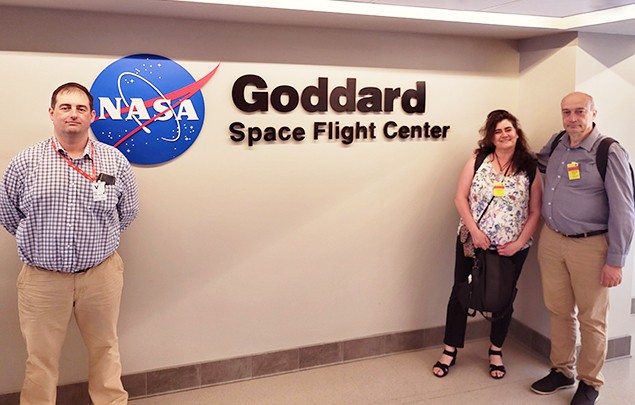NASA's new LRO mission planning system ready to begin operations

The week of June 11-14, validation and acceptance testing of the Lunar Reconnaissance Orbiter (LRO) planning system upgrade was conducted at NASA Goddard Space Flight Center in Greenbelt outside of Washington DC, USA.
LRO is a lunar orbiter that has been mapping the surface of the Moon since its launch in 2009, helping to identify potential lunar landing sites for future missions. Its planning system is based on GMV Flexplan®, GMV's solution and "brain" of the ground segment, which is responsible for coordinating the whole mission and receiving information not only from the satellite itself but also from the ground infrastructure.
The aim of these tests has been to renew the underlying technologies to mitigate the obsolescence of the system that has been operating the mission since launch. The GMV Flexplan® upgrade will allow this mission to continue with its crucial task, guaranteeing that it will be using the most up-to-the-minute technologies for years to come.
During the tests, NASA representatives gave a very positive assessment of GMV Flexplan® as a planning tool, highlighting its robustness and proven in-flight efficiency. GMV's upgrade work was also praised for its quality and accuracy. The validation was a resounding success, enabling the upgraded system to go live.
The meeting culminated in a demonstration for the operations team of various NASA science missions, including a presentation of the latest version of this solution, which includes advanced mission-planning functions, demonstrating GMV's ongoing commitment to innovation and excellence in its technological solutions.
This acceptance underlines GMV's capacity to provide high-tech space solutions, reinforcing its position as a key partner in major international projects.
With GMV Flexplan® GMV not only guarantees the continuity of this critical mission but also operates missions of the European Space Agency (ESA), the European Organisation for the Exploitation of Meteorological Satellites (EUMETSAT), NASA's Goddard Space Flight Center and commercial operators like Astroscale.